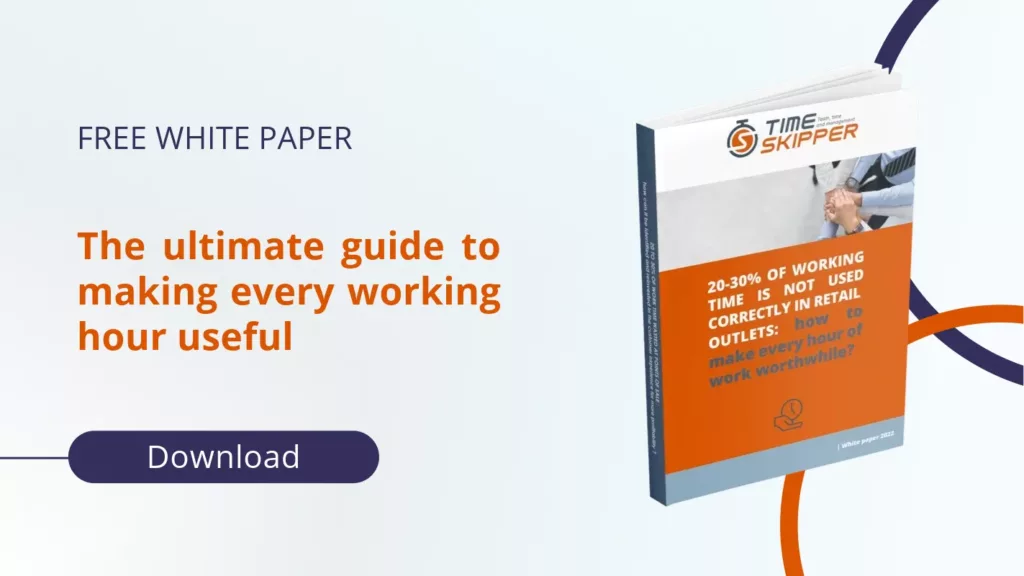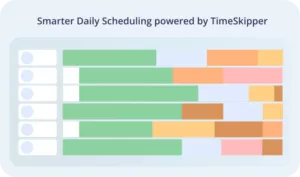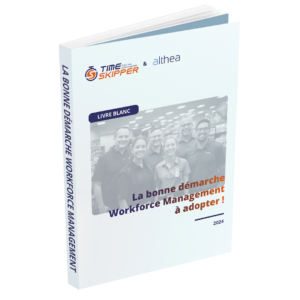The Covid crisis speeded up changes in how people relate to work. Remote working and flexibility are now seen as normal, and this means greater autonomy and responsibility for company employees.
In retail, where you need to be on hand to stock shelves, for example, this type of organisation is more difficult to set up. However, over 50% of point-of-sale staff feel they have a high degree of autonomy. We should be aware, though, that this perception reflects a non-constructive “laissez-faire” attitude, rather than a management style based on autonomy and reaching objectives that allow for growth. In fact, 2/3 of retail managers admit that they are overwhelmed when it comes to managing and monitoring their teams due to a lack of time, tools and often training.
So, what do we really mean by “autonomy and responsibility”? How can these values be put into practice in store management teams?
The answer – and solution – with Timeskipper.
The retail sector: what do we mean by “real” autonomy and responsibility?
Autonomy and responsibility: a commitment to the shop’s team and customers
We can say that a department manager is autonomous if they are capable of making decisions and carrying out the tasks of their choice in line with customer expectations and the shop’s needs. They enjoy this autonomy within their own scope, but there is also the vital concept of employee interdependence.
Provided that their priority tasks are completed within the allotted time, each member of the team may be asked to leave their assigned area of responsibility to contribute to a shared workload (cleaning, facing, tidying up, training, etc.). In specialised distribution, for example, autonomy means always ensuring that sales advice takes priority over your own tasks. This means taking care of the customer first.
Autonomy means the freedom to decide on the resources and organisation needed to achieve a common goal. Continuing on from this, responsibility lies in taking ownership of the objective and committing to reaching it. In this sense, autonomy is consubstantial with responsibility; implementing both of these improve employees’ motivation and performance.
Autonomy and responsibility: what does the organisation model require?
Autonomy and responsibility are neither given nor demanded. They are earned – under certain conditions:
1 – The manager’s mindset and ability to motivate their teams
The manager’s approach is the first catalyst for autonomy and participation. There are certain non-negotiable pre-requisites for this:
-
Trust in their teams,
-
A management style that values co-responsibility,
-
Allowing each individual to take initiatives.






